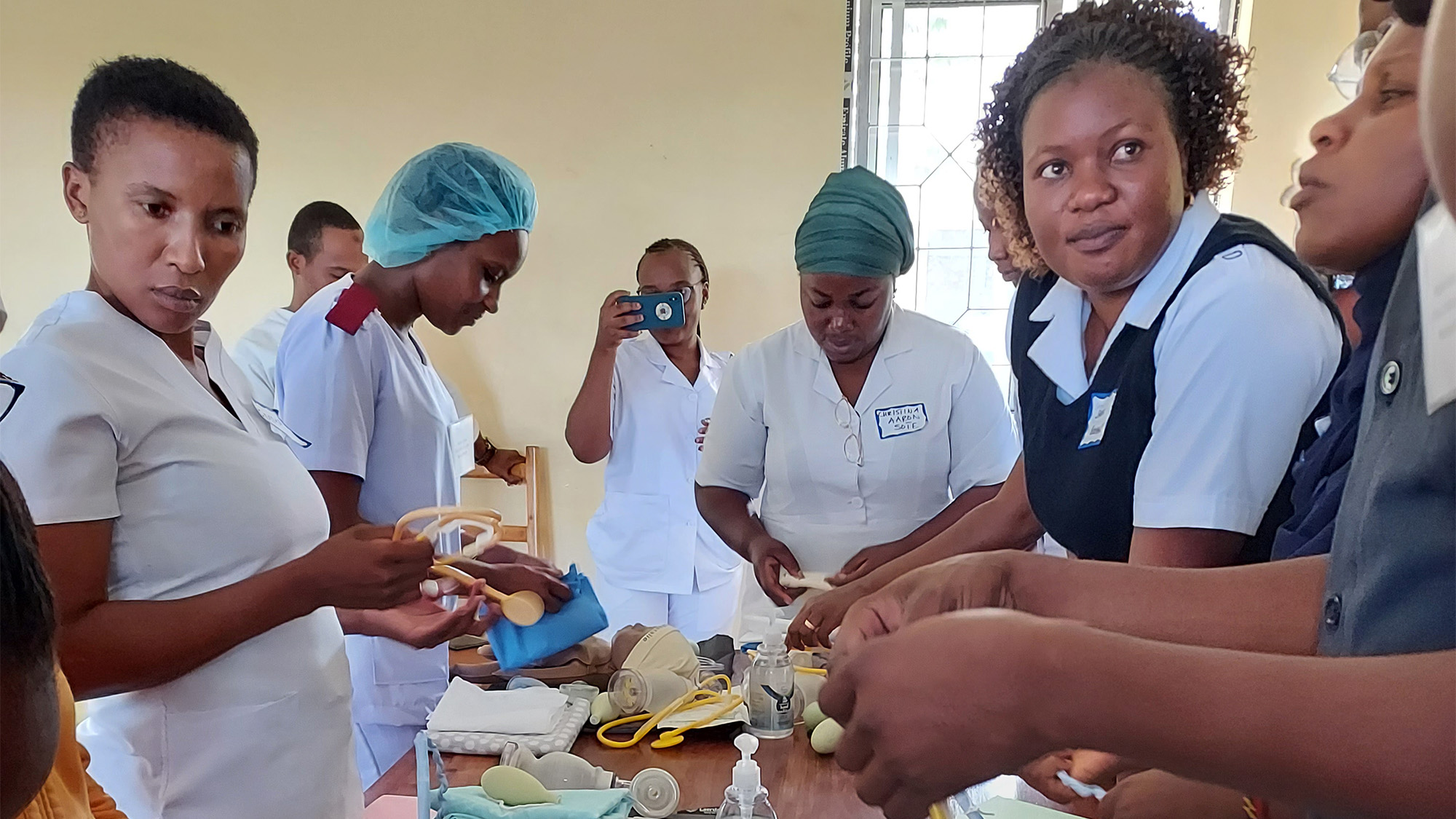Georgetown Nursing Faculty Teach ‘Helping Babies Breathe’ Program to Reduce Tanzania’s Neonatal Mortality Rate
(March 18, 2024) — Georgetown nursing faculty members, alongside their Tanzania counterparts, trained dozens of nurse-midwives to perform a highly effective, yet simple strategy that can prevent up to a third of newborn deaths by helping babies breathe in the moments after birth.
The effort is part of an ongoing educational and cultural exchange between the School of Nursing and the Siha District in the Kilimanjaro Region of Tanzania that has included trips to the region by students and faculty since 2022. This latest trip was funded by a Georgetown Global Engagement Faculty Grant.
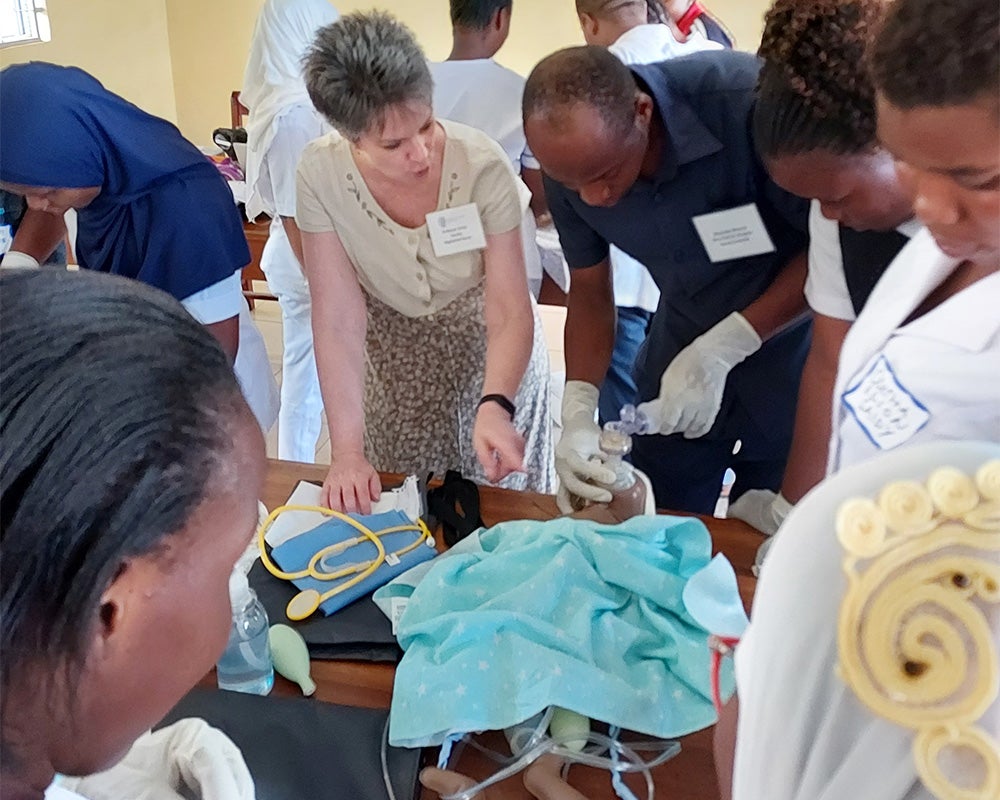
Krista White, PhD, RN, pictured center, participated in the latest trip to the Siha District in the Kilimanjaro Region of Tanzania.
While infant mortality in Tanzania is trending downward, the rate remains higher than other sub-Saharan nations. Thirty-five out of every 1,000 infants born in the country die, and it is estimated that 60 to 70% of these neonatal deaths occur during the first hour of life, many dying of asphyxia. In 2009, the American Academy of Pediatrics (AAP) created Helping Babies Breathe (HBB) as a cost-effective initiative to reduce neonatal deaths. When deployed, the program reduces early neonatal mortality by almost half. The global HBB initiative is currently overseen by the World Health Organization in collaboration with the AAP, Laerdal Global Health, and Jhpiego.
“From our very first visit, our Tanzanian nurse-midwife colleagues identified the HBB program as something they’d like to introduce to the community of nurse caregivers,” said Krista White, PhD, RN, who participated in the latest trip alongside Kelley Anderson, PhD, FNP, and Karen McClure, DNP, FNP, an HBB master trainer.
Helping Babies Breathe
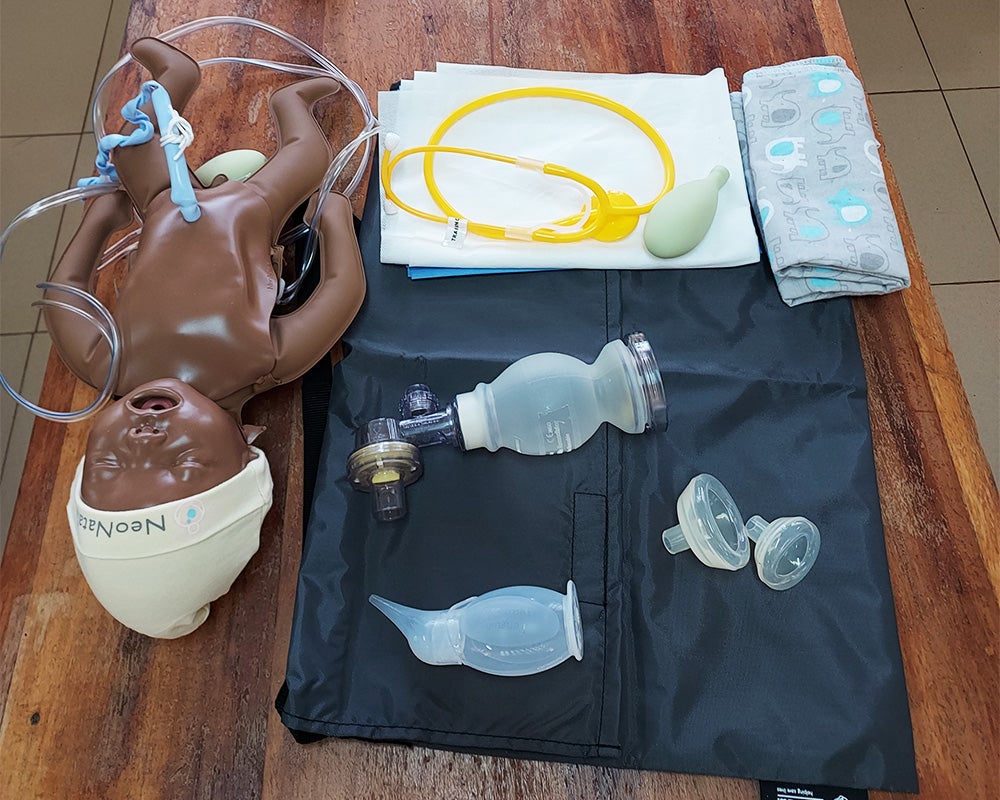
The training used a newborn simulator (NeoNatalie).
The HBB evidence-based program involves training with hands-on activities leading up to ventilation in the first minute of life using equipment made affordable to low-resource countries, such as a newborn suction bulb, ventilation bag and mask. Training was done using a newborn simulator (NeoNatalie).
During their March trip to Tanzania, the Georgetown nurses prepared seven Tanzanian nurses/midwives to serve as HBB trainers; then together, they all worked with 40 nurse-midwives from 17 of the 22 health facilities in Siha District during one of two eight-hour training sessions.
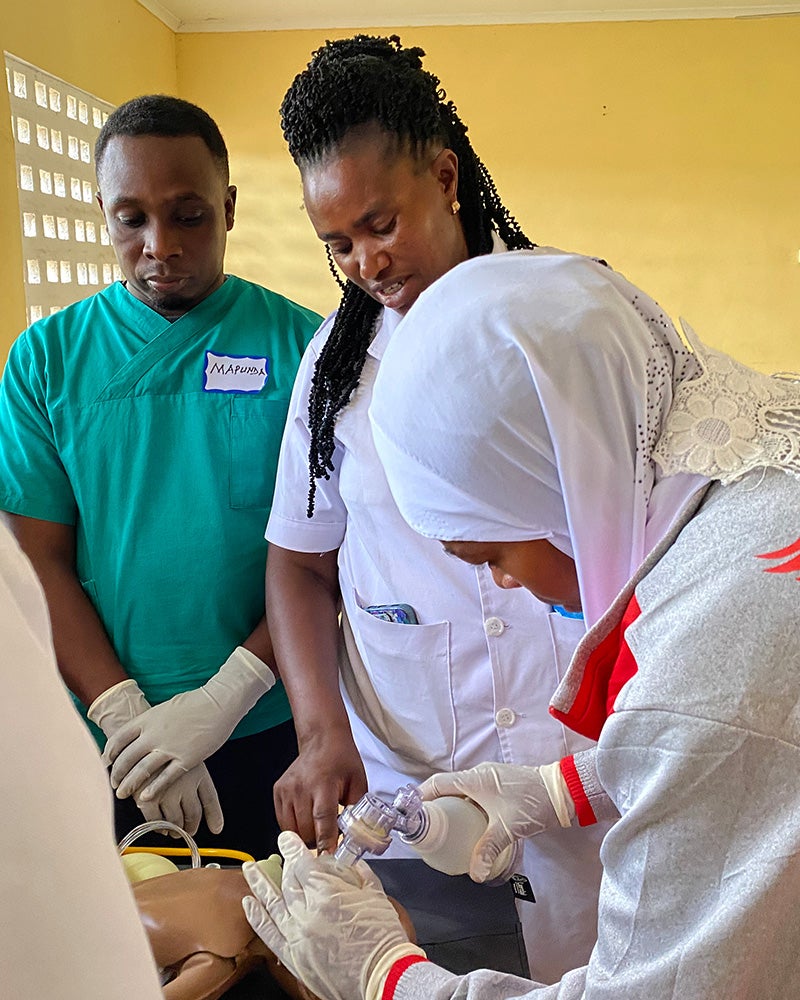
Program evaluations from the participants were overwhelmingly positive.
Program evaluations from the participants were overwhelmingly positive. The nurses/midwives provided comments such as, “Thank you for helping to teach us how to save more babies” and “We need to keep practicing so that we don’t lose these skills.”
“There is a need for HBB training kits in numerous health facilities across the district so that staff can practice, work with trainers and maintain competence with their skills,” White said. Discussions are underway with Siha district health care leaders to procure more HBB kits, to sustain the HBB program in-country, and to provide support and follow-up.
Values-based Work
McClure said the relationship with their Tanzania colleagues is guided by Jesuit values.
“In the Jesuit tradition, we provided values-based education and practice in partnership with the local medical community,” McClure said. “It was a blessing to serve and learn from these very precious students!”
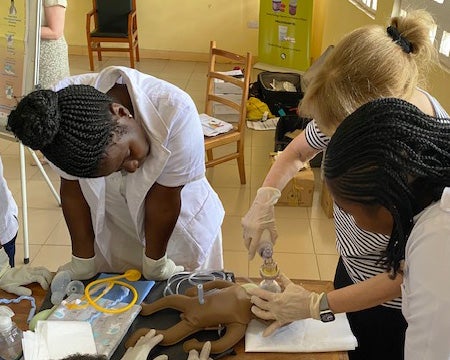
Karen McClure, DNP, FNP, pictured center, demonstrated a procedure.
In addition to the HBB training, the Georgetown nurses helped conduct community screenings, working with local residents to measure their weight, heart rate, blood pressure, oxygen saturation and blood glucose. Connections with local health care providers were made as needed. They also provided educational materials on management of blood glucose and high blood pressure.
“Relationships, trust and sustainability require continuous dedication, time, understanding and ongoing development to ensure mutually beneficial collaborations,” said Anderson.

